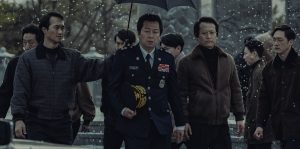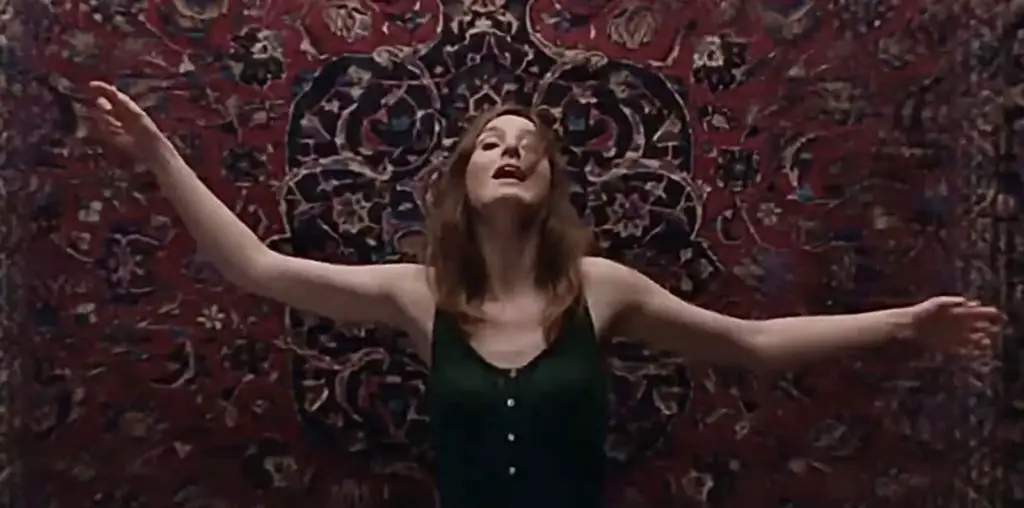
Something strange happened to me during my first week in South Korea. As part of the orientation process for my English teaching program, I was touring different landmarks in Busan with some other newbie foreigners. We stopped for lunch at BEXCO, a famous downtown mall, and noticed a commotion outside. It was a demonstration in support of Park Geun-Hye, the ex-president who had recently been impeached for embezzlement, corruption, and possible cult-like behavior. Hundreds of mostly old, conservative folks were furiously waving flags and demanding the reinstatement of their disgraced former leader.
I was appalled. Just weeks ago on Facebook, I had seen the massive protests that pushed the government to remove Park Geun-Hye from office. Some people still liked her? I had to see this for myself. However, when I tried to get a closer look, my Korean handlers hurried me away and told me I could get in big trouble for “participating” in such a protest. South Korea has freedom of speech…for Korean citizens. There are still legal limits, apparently, on foreigners’ freedom of assembly.
It was a stark reminder that while South Korea is now a mostly free country, as recently as 30 years ago it was ruled by despots. That transition from dictatorship to democracy is the subject of 1987: When The Day Comes, a new political drama that’s both a kaleidoscopic study of an authoritarian system and an emotionally exhausting thriller. It’s a must-see for anyone with an interest in politics or activism, and a hell of a watch for anyone else.

“During a torture session, the cops accidentally drowned Jong-Chul and failed to cover it up…”
1987 assumes some basic familiarity with South Korean history; I’ll try to keep the lecture short. From 1963 to 1979, the country was ruled by Park Chung-hee (Park Geun-Hye’s father), an authoritarian dictator who jumpstarted the economy and crushed dissent. After Park’s assassination, another dictator, Chun Doo-hwan, came into power in 1980. Under both of these rulers, anyone who protested in favor of civil rights, liberalism, etc. was branded “pro-North Korea” and thrown in prison or worse.
The film covers the time period in early 1987 after “anti-communist” police killed student activist Park Jong-Chul. During a torture session, the cops accidentally drowned Jong-Chul and failed to cover it up. The investigation into his death, the media coverage of it, and the subsequent “June Democratic Uprising” ultimately toppled the Chun administration’s regime and helped pave the way for direct democracy in South Korea.
1987’s quick-cutting, pseudo-documentary style resembles an amped-up version of the naturalism found in movies like Spotlight and All The President’s Men. But while those films were based on true events, 1987 is somewhat fictionalized (especially the villains: South Korea’s harsh libel laws allow people to sue for publication of the truth if it hurts their image). Some of the core characters are based on real people, but this is not a paint-by-numbers recreation of what happened. This is an ensemble melodrama with every character highlighting a different shade of a people under siege: the hard-drinking, devil-may-care prosecutor, the naïve and vain college student who is forced into activism by circumstance, and the conflicted government operatives who take the fall for Jong-chul’s death.

“…an ideologue who genuinely believes that free speech is a slippery slope to communism.”
The best character, though, is the main villain, Park Cheo-Won (Kim Yoon-seok). A North Korean defector, he leads the anti-communist branch of the government and orchestrates most of the oppressive violence we see. Most of the movie’s villains are just doing what the system commands, and it’s their head on the chopping block if they don’t comply. But Cheo-won is different from his underlings: he’s an ideologue who genuinely believes that free speech is a slippery slope to communism. Kim Yoon-Seok brings gravity and melancholy to a character with a conscience dulled by extremism, and his performance gives some moral complexity to the blunt-force-trauma experience of 1987.
This can be a difficult watch. The violence isn’t graphic compared to most horror movies, but it’s more disturbing. The anti-communist lackeys are made out to be absolute sadists, and there are no limits to the state-sanctioned bloodshed they use to control the truth. The sheer amount of torture and police brutality on display can feel excessive, but it never crosses into meaningless sensationalism: it’s always contextualized by what it means for the victims in their struggle.
If 1987 goes too far, it’s not in the violence, but in the sentimentality. Yes, there is a sun-dappled teen romance with tragic undertones. Yes, there are tearful scenes where characters explain their backstories and life philosophies. Yes, there is a sudden epiphany involving a stained-glass window of Jesus Christ that’s so over the top, I chuckled despite myself. But if these things bother you, you probably won’t like most Korean movies. For better or for worse, the Korean film industry is addicted to melodramatic flourishes, and they’re used to good effect here.

“…Korean film industry is addicted to melodramatic flourishes, and they’re used to good effect…”
Since Donald Trump’s election, I’ve read some articles that say America’s recent troubles can be blamed on liberalism’s inherent unsexiness. Compared to the lure of radical philosophies like communism, libertarianism, and far-right nationalism, the democratic process isn’t going to appeal to young people who are out of work. F**k that! If you want to convince a cynic to vote in the next election, show them 1987. This is as good a piece of pro-democracy propaganda as anything I’ve ever seen. It’s ruthless in making its point. It’s not easy viewing, and it’s completely manipulative, but so what? Film is manipulation.
At the time of this writing, the US Senate confirmed Gina Haspel as the next CIA Director despite her involvement with the Bush torture program. Our president has all but declared a war on the media. Leaders of the Ferguson protests keep dying under mysterious circumstances. America likes to think it’s a functional democracy, but despite its focus on Korea, 1987 speaks more to our current moment than anything Hollywood is producing.

1987: When The Day Comes (2018) Directed by Jang Joon-Hwan. Written by Kim Kyung-chan and Kim Yoon-Seok, Ha Jung-woo Yoo Hae-jin, Kim Tae-ri, Park Hee-soon, and Lee Hee-joon.
5 out of 5 stars

